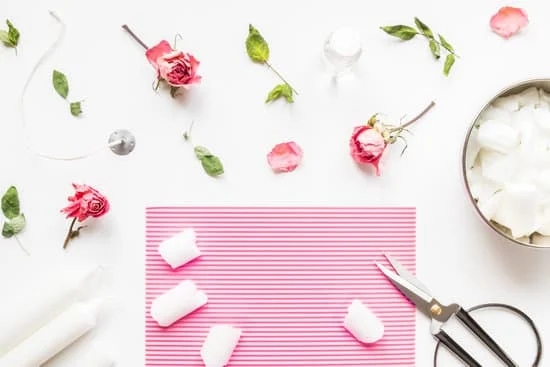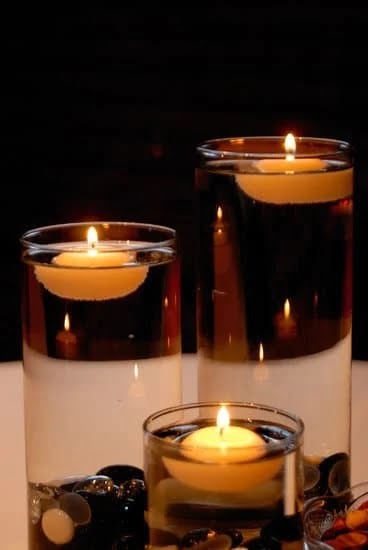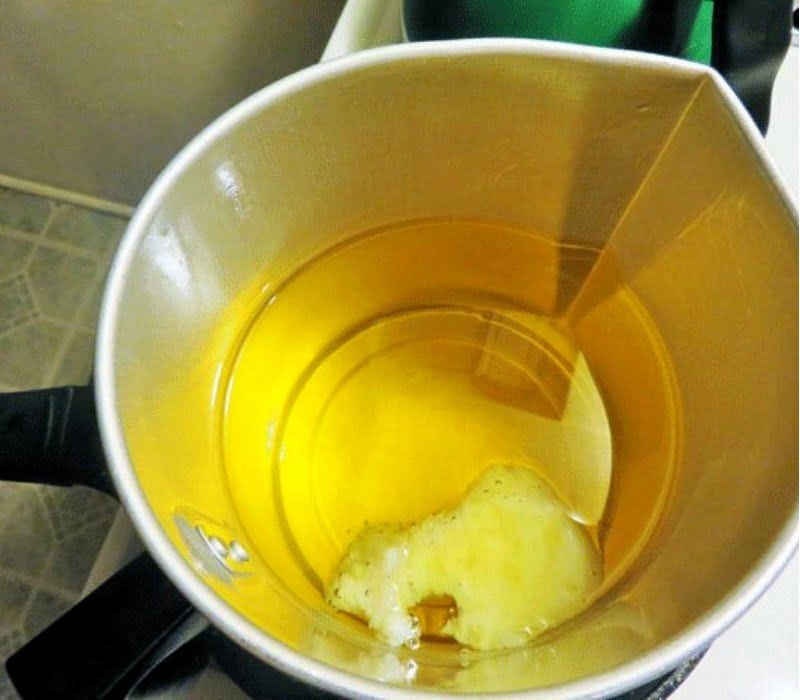When it comes to creating beautiful and aromatic candles, choosing the right oils is essential. In fact, selecting the best oils for candle making can make a significant difference in the quality and fragrance of your final product. Whether you opt for essential oils or fragrance oils, each type brings its unique characteristics to the table, allowing you to customize your candles to suit your preferences.
Essential oils are derived from natural sources like plants and flowers, offering a pure and authentic scent that can enhance the ambiance of any space. On the other hand, fragrance oils are synthetic blends specifically formulated for candle making, providing a wide range of fragrances to choose from. Understanding the differences between these two types of oils is crucial in ensuring that your candles turn out exactly as you envision them.
In this article, we will delve into the world of candle making oils, exploring the top essential oils that are perfect for creating delightful scents in your candles. Additionally, we will showcase some of the most popular fragrance oils available in the market today.
By providing tips on how to choose the right oil for your candle projects and sharing DIY essential oil blends recipes, we aim to inspire you to get creative with your candle making endeavors while prioritizing safety throughout the process.
Understanding Essential Oils vs Fragrance Oils
When it comes to candle making, choosing the right oils is essential in creating the perfect scented candles. One of the key considerations to make is whether to use essential oils or fragrance oils. Essential oils are derived from natural plant sources through processes like distillation or expression.
On the other hand, fragrance oils are synthetic compounds created to mimic specific scents. The choice between essential oils and fragrance oils can impact not only the aroma of your candles but also factors like cost and availability.
Essential oils are known for their therapeutic properties and natural fragrances, making them a popular choice for those seeking a more holistic approach to candle making. Some of the best essential oils for candle making include lavender, eucalyptus, and citrus scents like orange or lemon. These essential oils not only add delightful aromas to your candles but also have potential mood-enhancing benefits when diffused.
Fragrance oils, on the other hand, offer a wide range of scent options that may not be achievable with essential oils alone. Popular fragrance oils for candle making include vanilla, sandalwood, and various floral scents. These fragrance oils are often formulated to create long-lasting scents that can fill a room with an inviting aroma.
While some may prefer the natural purity of essential oils, others appreciate the versatility and consistency that fragrance oils provide in their candle creations. Ultimately, understanding the differences between essential oils and fragrance oils can help you make an informed decision based on your preferences and desired outcomes in candle making projects.
Top 5 Essential Oils for Candle Making
When it comes to choosing the best oils for candle making, essential oils are a popular choice among crafters and makers. Essential oils are natural plant extracts that not only provide fragrance but also offer therapeutic benefits. The following are the top 5 essential oils that are commonly used in candle making:
Lavender Essential Oil
Lavender essential oil is a favorite among many candle makers due to its calming and soothing properties. It has a floral and herbaceous scent that can help promote relaxation and reduce stress. Lavender essential oil blends well with other scents like citrus, mint, and woodsy aromas, making it a versatile option for creating candles.
Patchouli Essential Oil
Patchouli essential oil has a rich, earthy aroma that is often associated with peace and tranquility. This oil is commonly used in candles for its grounding qualities and ability to instill a sense of balance. Patchouli essential oil can be used on its own or combined with other scents like lavender, vanilla, or sandalwood for a unique and captivating fragrance.
Lemon Essential Oil
Lemon essential oil is known for its refreshing and invigorating scent that can uplift the mood and energize the senses. This citrusy oil is perfect for creating candles that help create a bright and cheerful ambiance. Lemon essential oil blends well with other citrus oils like orange or grapefruit, as well as with herbal scents like rosemary or peppermint.
These
Popular Fragrance Oils for Candle Making
When it comes to candle making, fragrance oils play a crucial role in determining the overall scent and ambiance of the final product. These oils are specifically formulated to be used in candles and can provide a wide array of scents ranging from floral and fruity to spicy and woody.
Many candle makers prefer using fragrance oils due to their consistency in scent and affordability compared to essential oils. In this section, we will delve into some of the most popular fragrance oils available for candle making.
Vanilla
Vanilla is a classic fragrance oil that is beloved by many for its warm and comforting aroma. It pairs well with a variety of other scents such as lavender, cinnamon, or citrus, making it a versatile option for candle making. Vanilla fragrance oil can help create a cozy atmosphere in any space, perfect for relaxing evenings or enhancing the ambiance during special occasions.
Lavender
Known for its calming properties, lavender fragrance oil is a popular choice for candles meant for relaxation and stress relief. The soothing floral scent of lavender can promote a sense of tranquility and peace, making it ideal for bedrooms or meditation spaces. Combining lavender with other oils like chamomile or eucalyptus can enhance its calming effects even further.
Sandalwood
Sandalwood fragrance oil offers a rich and earthy scent that adds depth and warmth to candles. Its woody aroma is often associated with grounding and spiritual practices, making it a popular choice for aromatherapy candles. Sandalwood blends well with other oils like patchouli or cedarwood, creating a robust and inviting fragrance profile for your candles. When selecting the best oils for candle making, consider experimenting with these popular fragrance options to discover unique combinations that suit your preferences and style.
Tips for Choosing the Right Oil for Your Candle
When it comes to choosing the best oils for candle making, there are a few key factors to consider in order to ensure that your candles turn out just the way you envision. One of the most important things to take into account is the type of wax you are using for your candles.
Different waxes have different properties and may work better with certain types of oils. For example, soy wax tends to hold fragrance oils well, while beeswax has its own natural scent that may not pair well with certain essential oils.
Another important consideration when selecting oils for your candles is the strength of the scent you desire. Essential oils are generally more subtle and offer natural aromas, while fragrance oils can provide stronger and longer-lasting scents. If you prefer a light and soothing aroma, essential oils like lavender or chamomile could be a great choice. On the other hand, if you want a more intense and distinct fragrance, popular fragrance oils like vanilla or cinnamon might be ideal.
Additionally, it’s crucial to ensure that the oils you choose are safe for candle making. Some essential oils can be potentially irritating or harmful if used at high concentrations or in large amounts.
Always check for any safety guidelines provided by suppliers and do a patch test before using new oils in your candles. By taking these factors into consideration, you can select the best oils for candle making that will result in beautifully scented and safe-to-use candles.
| Oil Type | Best Oils |
|---|---|
| Essential Oils | Lavender, Chamomile |
| Fragrance Oils | Vanilla, Cinnamon |
DIY Essential Oil Blends for Candles
Creating your own custom essential oil blends for candle making can add a unique and personal touch to your creations. By combining different essential oils, you can create a scent that is perfectly tailored to your preferences or the mood you want to set. When choosing oils for blending, it’s essential to consider both the individual scents of each oil and how they will complement each other when combined.
One popular DIY essential oil blend for candles is a combination of lavender, lemon, and peppermint oils. This blend offers a refreshing and energizing scent that is perfect for creating a relaxing atmosphere in your home. To create this blend, simply mix 30 drops of lavender oil, 20 drops of lemon oil, and 10 drops of peppermint oil in a glass dropper bottle. Shake well before adding a few drops to your candle wax before pouring.
Another great essential oil blend for candles is a mixture of cedarwood, bergamot, and orange oils. This blend creates a warm and inviting aroma that is perfect for cozy nights in. To make this blend, combine 25 drops of cedarwood oil, 15 drops of bergamot oil, and 10 drops of orange oil in a small glass bottle. Mix well before adding a few drops to your melted candle wax before pouring into your container.
Experimenting with different essential oil blends is part of the fun of candle making. Feel free to mix and match oils based on your preferences until you find the perfect combination that suits your taste. Remember to always use high-quality oils from reputable sources when creating your custom blends for the best results in your candle making projects using the best oils for candle making.
Safety Precautions When Using Oils in Candle Making
When working with oils in candle making, it is crucial to prioritize safety to ensure a smooth and secure process. The right precautions can make a significant difference in the outcome of your candles, as well as in maintaining your well-being during the crafting process.
One of the first steps to safe oil handling is wearing appropriate personal protective equipment, such as gloves and goggles, especially when dealing with concentrated oils. This simple measure can protect your skin and eyes from any potential irritation or contact with harmful substances.
Another significant safety precaution when using oils in candle making is to handle them in a well-ventilated area. Essential oils and fragrance oils can have strong scents that may be overwhelming when used in large quantities or for extended periods.
Proper ventilation not only helps in managing these potent aromas but also prevents you from inhaling excessive fumes which can cause respiratory issues over time. Whether you are melting the wax or mixing oils into it, ensure that there is adequate airflow to maintain a safe environment.
Moreover, it is essential to store your oils safely when not in use. Keep them away from direct sunlight and heat sources, as exposure to these elements can alter their composition and reduce their effectiveness over time. Additionally, always make sure to label your oil containers accurately to avoid any mix-ups or accidental misuse. By following these safety precautions diligently, you can enjoy the creative process of candle making while safeguarding your health and well-being effectively.
| Safety Measure | Importance |
|---|---|
| Wearing protective gear | Prevents skin and eye irritation |
| Working in a well-ventilated area | Avoids inhalation of fumes |
| Proper storage of oils | Maintains oil quality over time |
Conclusion
In conclusion, the world of candle making is truly enhanced by the use of oils, which provide scent, ambiance, and even therapeutic benefits to our homemade creations. Understanding the distinction between essential oils and fragrance oils can help crafters make informed decisions about what to include in their candles. Essential oils like lavender, eucalyptus, or citrus are among the best oils for candle making due to their strong scents and potential wellness benefits.
For those looking to branch out into different scents and explore new horizons in candle making, popular fragrance oils like vanilla, sandalwood, or gardenia offer a wide array of options. Mixing and matching these fragrances with essential oils can result in unique blends that cater to individual preferences and create signature scents that stand out.
As you embark on your candle making journey, keep in mind the tips provided for choosing the right oil for your projects, as well as the safety precautions necessary when working with oils. Whether you choose to follow recommended recipes for essential oil blends or experiment with your own combinations, remember to have fun and let your creativity guide you in creating beautiful candles that will not only light up a room but also fill it with delightful aromas.
So go ahead, explore the world of oils for candle making and let your imagination run wild.
Frequently Asked Questions
What Are the Best Oils to Use for Candle Making?
When it comes to choosing oils for candle making, some popular options include soy wax, coconut oil, beeswax, and paraffin wax. Each type of oil has its own unique qualities that can affect the burning time, scent throw, and overall quality of the candle.
Soy wax is a favorite among many candle makers due to its clean burn and ability to hold fragrance well.
Is It Better to Use Fragrance Oil or Essential Oil for Candle Making?
The decision to use fragrance oil or essential oil for candle making depends on personal preference and desired outcome. Fragrance oils are synthetic oils created specifically for adding scents to candles, offering a wide range of fragrances to choose from.
On the other hand, essential oils are natural plant extracts known for their therapeutic properties but may not always yield as strong of a scent throw in candles.
What Is the Best Essential Oil Blend for Candles?
Creating the best essential oil blend for candles involves experimentation and finding the right combination of scents that complement each other well. Some popular essential oil blends for candles include relaxing lavender and uplifting citrus, or soothing chamomile with fresh mint. The key is to balance the different aromas to create a harmonious fragrance that appeals to your senses.

Welcome to my candle making blog! In this blog, I will be sharing my tips and tricks for making candles. I will also be sharing some of my favorite recipes.





